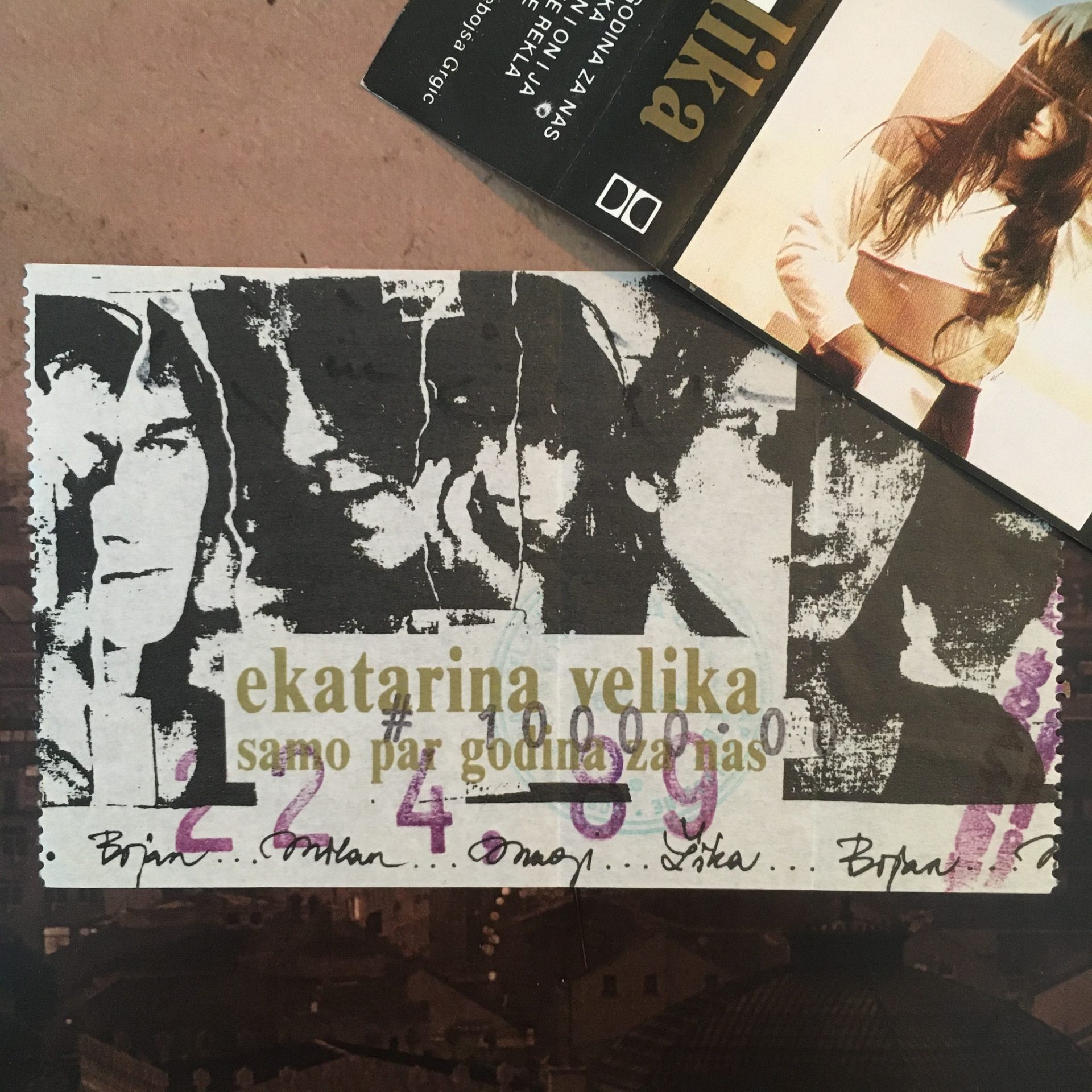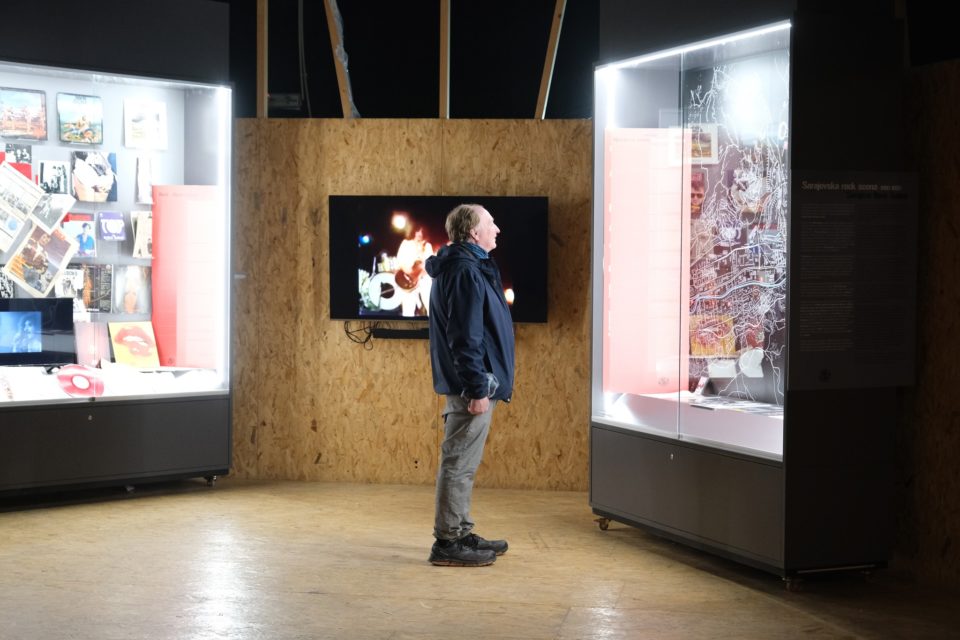
Drawing inspiration from the Musicians Hall of Fame, Will Richard, an American, started the creation of the EX-Yugo Rock Center (EYRC) in Sarajevo. The aim of EYRC is to honor and celebrate Yugoslav Rock and Roll as well as the contemporary music scene in Bosnia and Herzegovina and the region.
Richard’s love of music began in his father’s vinyl record store and evolved into a passion for Yugoslav Rock after living and working in Bosnia for several years. His plans for the EYRC started to come to life in early 2021. Eventually, the center aims to include a museum and exhibition space, a gift shop, a concert space, and, of course, it would not be a proper Sarajevo establishment without a cafe.

While rock music is most often associated with the United States and Great Britain, many argue that Yugoslavia created acts that were on par with their Western counterparts. One of the most influential and successful bands in the region, Bijelo Dugme (“White Button”), originated in Sarajevo itself and have remastered their work with Abbey Road Studios. In many ways, their mix of classic rock and roll instruments and vocals with traditional melodies from the western Balkan region created an authentic style of music.
Music Before Nationality
Many of the most well-known rock acts of Yugoslavia originated in Sarajevo, making it an ideal location for the EYRC to call home. However, the EYRC’s museum space wouldn’t only celebrate bands that came from the territory of Bosnia and Herzegovina. For example, Majke (“Mothers”), one of Richard’s favorite bands from former Yugoslavia, comes from Croatia and will likely be featured in the center. While all of the bands featured have their own unique histories and styles, EYRC prioritizes music over nationality. Whether Serbian, Montenegrin, Bosnian, Croatian, Slovenian, Kosovar, or Macedonian, these bands are considered first as artists, and then, as Yugoslav.
Not only does the project provide a good opportunity for the public to explore this music, but it’s also an opportunity for the city of Sarajevo to expand its selection of museums. At the moment, most museums in this capital city focus on different wars and conflicts. While these museums are indispensable, they create the sense that war is the defining feature of the culture, which is far from the truth. Projects that aim to honor the cultural aspects of the city and its history are thus needed to paint a more accurate image for tourists who might not understand the nuances of Sarajevo history and all of its cultural eras.
One example of a similar project is the Sevdah Art House, which focuses on a specific kind Bosnian folk music called Sevdalinka. This cafe and museum honor the centuries-old musical tradition that started to become very popular around the early 1900s.
The EYRC aims to become an attraction in this respect. “Not only will it offer foreigners visiting Sarajevo a unique opportunity to immerse themselves in Yugoslav music, but it will also enable people from the entire region to embrace the culture in a more neutral and positive environment,” said Richard, emphasizing that celebrating Yugoslav rock celebrates Sarajevo’s multicultural history.
EYRC also aims to attract new artists and encourage them to share their music with locals and foreigners. “This is where the concert space will play a pivotal role in the center because it will allow artists throughout the region who may have been inspired by the legendary acts displayed in the exhibitions to share their own work. By honoring the past, people are able to move forward and develop new authentic styles, just like courageous artists have done throughout history,” added Richard.
“See you at the opening”
People who adore the rock and roll music of former Yugoslavia have been overwhelmingly enthusiastic about Will Richard’s idea. Dragan “Điđi” Jankelić, former drummer of Bijelo Dugme, said, “the idea of an Ex-Yu rock museum in Sarajevo is a real astonishing one and I support it with all of my heart and soul! I would like to see us all there at the opening ceremony. See you there!”
Dino Šaran, lead singer of the group Letu Štuke (“Flying Pike”), stated in a recent interview with Richard that he is also in full support of the project and willing to reach out to any other artists that would be of interest to the center. But in this interview, Šaran pointed out a major difficulty the center will have to face: separating the art from the artist. While he might adore the Yugoslav rock albums released by artists prior to the war, he recognizes that artists are still responsible for their nationalistic actions or rhetoric during and after the fall of Yugoslavia.
Walking this fine line between appreciating the art and acknowledging the controversies of individual artists is a tough but necessary part of the road ahead which EYRC understands must be approached carefully and again, with the aim of putting the music first.
These politically contentious issues pose obvious setbacks, as less funding is often provided to projects that do not directly promote reconciliation or commemoration the way a war museum might. However, this has not stopped the EYRC from gaining international support. Centar za promociju civilnog drustva (CPCD, “Center for the Promotion of Civil Societies”), AMUS, UNESCO, and other organizations have already sponsored and endorsed this project.
“This is just the beginning, but the EYRC has already demonstrated the value of its mission,” said Richard.
For any artists, producers, executives, promoters, photographers, journalists, and fans who would like to donate or loan any original/authentic photos, posters, recordings, instruments, clothing, documents, rare records, or other items that could be of value to the center, please reach out to the EYRC directly. You can contact [email protected] or call +387 62 332 770 or +381 63 386 451.






